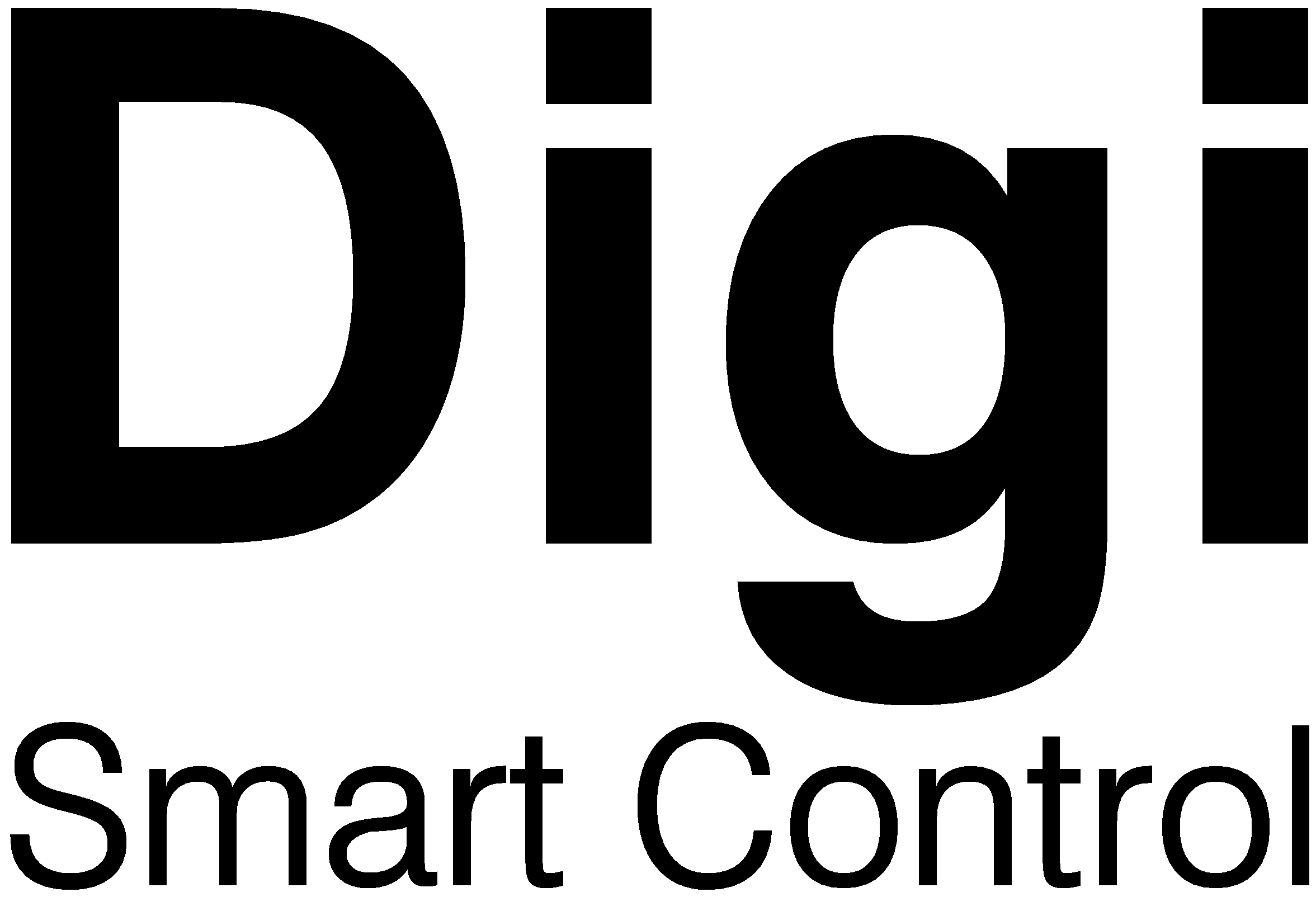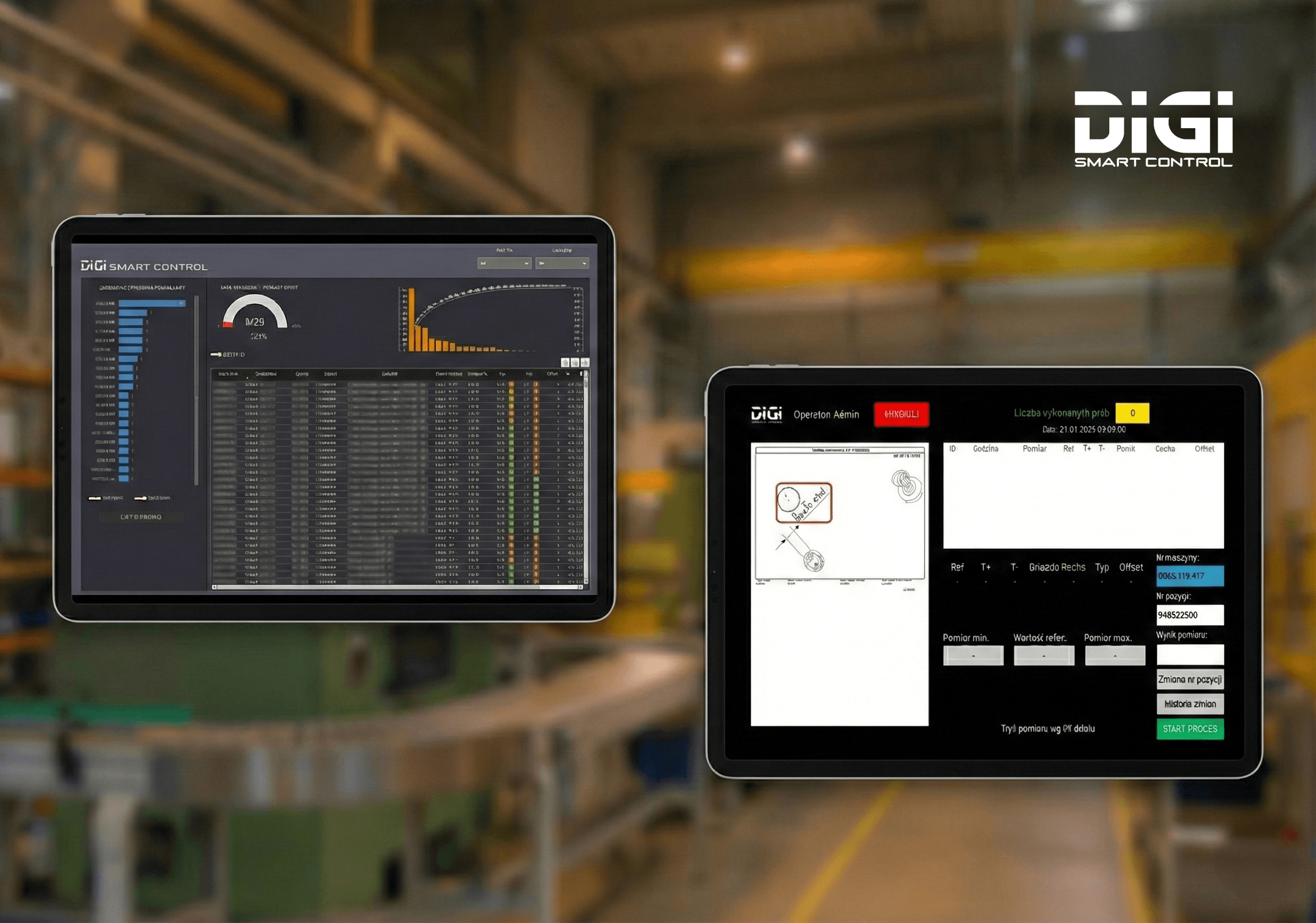Technology That Works Like Your Production
Quality checklists in Excel, shop floor events reported 'after the shift', and manually compiled OEE reports? We design IT systems for manufacturing that collect real-time data from lines, ensure quality and traceability, and integrate with ERP, MES, SCADA, and machines. Start with one module you can launch in 4-8 weeks, without replacing all systems at once.
Technology for manufacturing
Software that works like your production
Do you want to organise processes on the shop floor? Tried off‑the‑shelf tools, but they force workarounds and miss key steps? Let’s tailor a solution to your process: from station and quality/traceability panels, through dashboards and OEE, to integrations with ERP, MES, SCADA and PLC.
Choose the area you want to start with:
MES
Production Management Systems
OEE
Production Performance Monitoring Systems
SCM
Supply Chain Management
QMS
Quality Management Systems
BI
Data analysis and Business Intelligence
Integrations
Integrations with machines and with current ERP systems
Is it for you?
When custom manufacturing software makes sense
See if you recognise the symptoms below. If at least one fits your company, dedicated software for production may be the right direction.
Quality control in Excel and on paper
In‑process checklists and measurements live in spreadsheets; versions diverge and audits lack a complete history.
You see shop‑floor events ‘after the fact’
Downtimes and faults reported by phone/messenger hit the system only after the shift, so response is delayed.
Traceability requires manual data matching
Batches/serials and operation links are reconstructed from notebooks; it’s hard to quickly define defect/recall scope.
Maintenance and calibrations slip through
Scattered calendars/files without reminders cause late inspections and incomplete service history.
No operator panel at the workstation
The operator has nowhere to confirm operations, record a measurement or add photos - data is entered ‘after the fact’.
Limited integrations with machines/devices
Data from PLC/SCADA, scales, scanners or sensors doesn’t reach the system (or is delayed); custom flows are needed.
Instructions and standards not up‑to‑date on the floor
Procedures live in PDFs; different shifts work ‘their own way’, increasing risk of errors and lack of standardisation.
Reports and OEE compiled manually
Machine dumps and line files are manually merged; KPI definitions differ between cells, so results aren’t comparable.
What scope?
From module to full system
We tailor the scope to the goal. Sometimes a module is enough, other times a full system is justified.
When a module
You have a working ERP/MES, but a specific element is missing (e.g. confirmation panel, traceability).
You want a quick pilot in one area.
You need impact in a single process - without ‘replacing everything’.
When a full system
You need a consistent environment for planning, execution and reporting.
A large number of stations/cells, many integrations, audit requirements.
A central data model and unified work standards.
Technological changes
Technological change in industry
Technological change in industry is the development of automation, robotics, AI and IoT, modernising manufacturing
- Industry 4.0
Networking / internet - integration of machines with systems. Data exchange between machines. Networking of components and machines using intern standards.
- Industry 3.0
Digitalisation - microcontrollers for machines, increase in automation.
- Industry 2.0
Electrification - first production lines.
- Industry 1.0
Mechanisation - steam engines.




Industry 4.0
Why move to Industry 4.0?
It’s a path to smarter production: lower costs, fewer errors, and better decisions with real-time data.
Increase in OEE
Ability to optimise production resources through quick insight into load plans of individual nests/stations
Increase in productivity
Increased team mobilisation and efficiency through the use of an explicit order execution control system
Increase in availability
Possibility of online monitoring of implemented processes thanks to real-time recording of production events
Improvement in quality
Inter-operational control of the quality of implemented operations through the use of checklists and risk signalling
Case studies
Example realization
Every solution is tailor-made - from simple modules to full systems boosting control and production efficiency.

DiGi - Operator application for the quality control sector
An application designed for performing quality control measurements using measuring devices such as scales or calipers. It allows for managing and creating custom measurement schemes tailored to the individual user's needs. The ability to attach technical documentation to each detail allows for precise indication of the measurement location
Key areas
Technology in production – benefits in every department
See how technology organises work across key production areas – from quality and execution, through traceability and maintenance, to reporting and integrations.
What we build
In‑process quality control panel: checklists, measurement validation, photos.
Nonconformity register + corrective actions workflow (8D/5Why).
Integrations with measuring instruments and documentation systems.
Benefits in practice
Unified quality records and complete audit trails.
Faster response to nonconformities, fewer errors in reports.
Better audit readiness (ISO/IATF/HACCP).
Benefits
Benefits of joining “Industry 4.0”
What are the benefits of entering the “Smart Industry” generation?

Do you have any questions?
Please contact us via the form.
By clicking 'send' you agree to our policy privacy.
